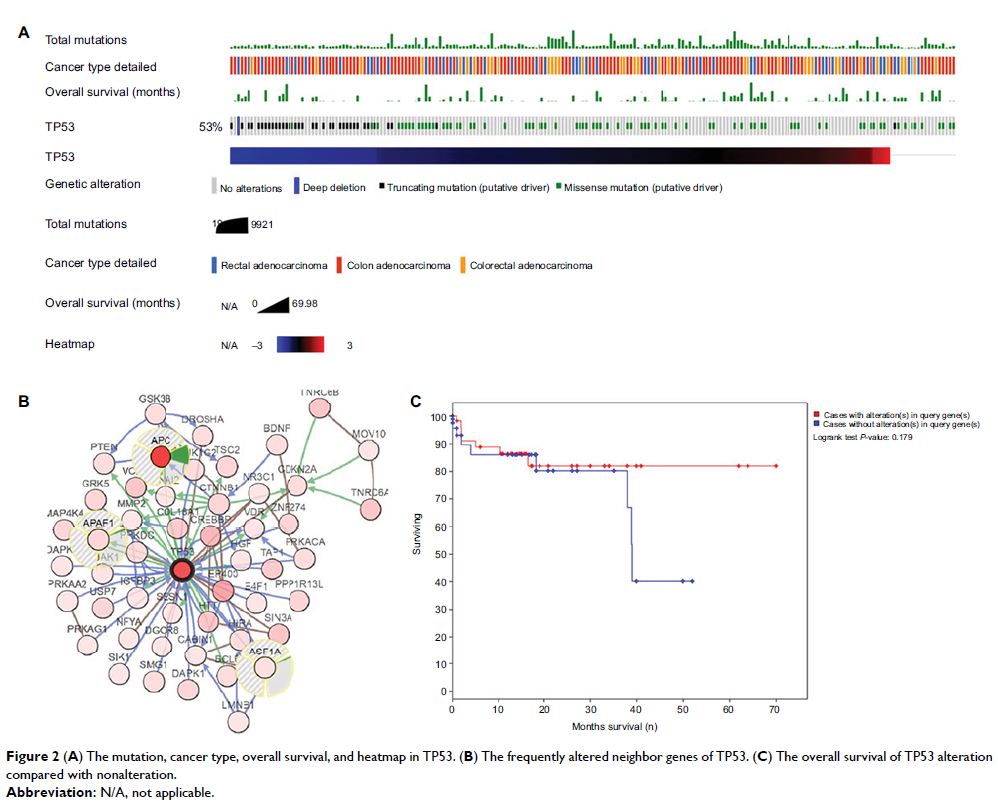108985
论文已发表
注册即可获取德孚的最新动态
IF 收录期刊
- 3.4 Breast Cancer (Dove Med Press)
- 3.2 Clin Epidemiol
- 2.6 Cancer Manag Res
- 2.9 Infect Drug Resist
- 3.7 Clin Interv Aging
- 5.1 Drug Des Dev Ther
- 3.1 Int J Chronic Obstr
- 6.6 Int J Nanomed
- 2.6 Int J Women's Health
- 2.9 Neuropsych Dis Treat
- 2.8 OncoTargets Ther
- 2.0 Patient Prefer Adher
- 2.2 Ther Clin Risk Manag
- 2.5 J Pain Res
- 3.0 Diabet Metab Synd Ob
- 3.2 Psychol Res Behav Ma
- 3.4 Nat Sci Sleep
- 1.8 Pharmgenomics Pers Med
- 2.0 Risk Manag Healthc Policy
- 4.1 J Inflamm Res
- 2.0 Int J Gen Med
- 3.4 J Hepatocell Carcinoma
- 3.0 J Asthma Allergy
- 2.2 Clin Cosmet Investig Dermatol
- 2.4 J Multidiscip Healthc

TP53 mRNA 表达和 TP53 密码子 72 ARG/Pro 基因多态性与亚洲人群结肠直肠癌发病风险的相关性:生物信息学分析和 Meta 分析
Authors Dong ZY, Zheng L, Liu W, Wang C
Received 7 February 2018
Accepted for publication 29 March 2018
Published 25 May 2018 Volume 2018:10 Pages 1341—1349
DOI https://doi.org/10.2147/CMAR.S164892
Checked for plagiarism Yes
Review by Single-blind
Peer reviewers approved by Dr Colin Mak
Peer reviewer comments 2
Editor who approved publication: Dr Leylah Drusbosky
Background: The relationship between TP53 codon 72 Pro/Arg gene polymorphism
and colorectal cancer risk in Asians is still controversial, and this
bioinformatics analysis and meta-analysis was performed to assess the
associations.
Methods: The association studies were identified from PubMed, and eligible
reports were included. RevMan 5.3.1 software, Oncolnc, cBioPortal, and Oncomine
online tools were used for statistical analysis. A random/fixed effects model
was used in meta-analysis. The data were reported as risk ratios or mean
differences with corresponding 95% CI.
Results: We confirmed that TP53 was associated with colorectal cancer, the
alteration frequency of TP53 was 53% mutation and 7% deep deletion, and TP53
mRNA expression was different in different types of colorectal cancer based on
The Cancer Genome Atlas database. Then, 18 studies were included that examine
the association of TP53 codon 72 gene polymorphism with colorectal cancer risk
in Asians. The meta-analysis indicated that TP53 Pro allele and Pro/Pro
genotype were associated with colorectal cancer risk in Asian population, but
Arg/Arg genotype was not (Pro allele: odds ratios [OR]=1.20, 95% CI: 1.06 to
1.35, P =0.003; Pro/Pro genotype:
OR=1.39, 95% CI: 1.15 to 1.69, P =0.0007; Arg/Arg
genotype: OR=0.86, 95% CI: 0.74 to 1.00, P =0.05).
Interestingly, in the meta-analysis of the controls from the population-based
studies, we found that TP53 codon 72 Pro/Arg gene polymorphism was associated
with colorectal cancer risk (Pro allele: OR=1.33, 95% CI: 1.15 to 1.55, P =0.0002; Pro/Pro genotype:
OR=1.61, 95% CI: 1.28 to 2.02, P <0.0001;
Arg/Arg genotype: OR=0.77, 95% CI: 0.63 to 0.93, P =0.009).
Conclusion: TP53 was associated with colorectal cancer, but the different
value levels of mRNA expression were not associated with survival rate of colon
and rectal cancer. TP53 Pro allele and Pro/Pro genotype were associated with
colorectal cancer risk in Asians.
Keywords: colorectal carcinoma, TP53 codon 72, gene polymorphism, mutation,
bioinformatics analysis, meta-analysis
